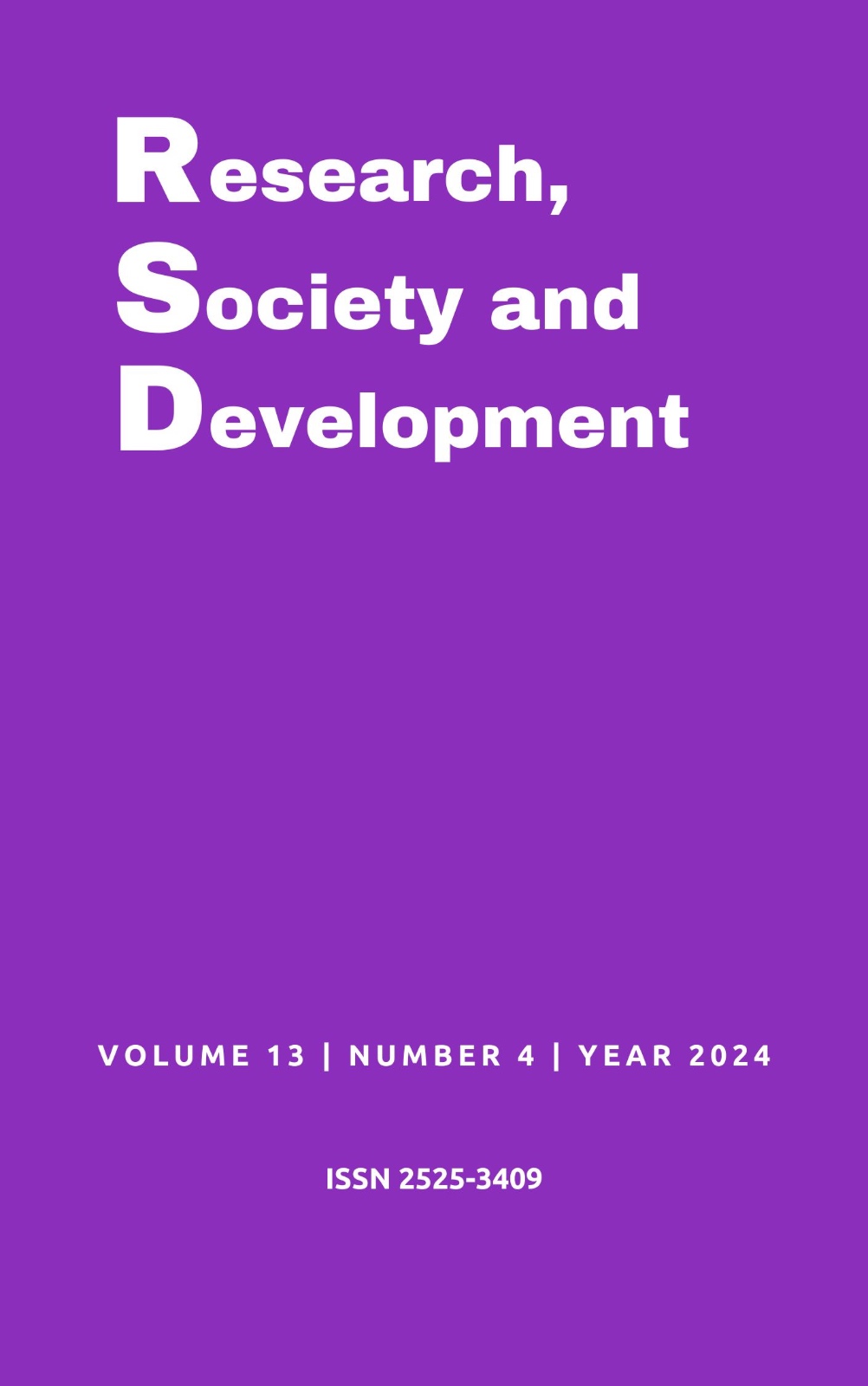Application of maker culture elements in project development
DOI:
https://doi.org/10.33448/rsd-v13i4.45656Keywords:
Maker culture, Methodology, Projects.Abstract
This work sought to explore the transformative force of maker culture at the State Technical School of Professional and Technological Education of Cuiabá-MT, aiming to innovate and modernize the teaching methodology in the classroom, in addition to making it more inclusive and collaborative in fields such as Computing, Workplace Safety and Sustainability. To this end, we seek a practical and collaborative approach, based on the maker culture, to employ the development and implementation of educational technological projects focused on the interests of students, as well as the areas of knowledge of the courses offered at the institution. We were able to observe the positive impact of maker culture on education, not only in terms of developing technical and innovative skills among students, but also in promoting social and environmental awareness. The new approach allowed us to develop and implement three significant projects that translate well into the effective integration of maker culture into teaching methodologies, in which students can apply theoretical knowledge in real-world situations, developing practical solutions to important problems and contributing to the safety and well-being of the community.
References
Bandoni, A. (2016). Já não se fazem objetos como antigamente. p. 50-61. In: MEGIDO, Victor Falasca (Org.). A Revolução do Design: conexões para o século XXI. São Paulo: Editora Gente.
Bertrand, M., & Namukas, I. (2020). STEAM education: student learning and transferable skills. Journal of Research in Innovative Teaching & Learning. ahead-of-print. 10.1108/JRIT-01-2020-0003.
Blikstein, P. (2013). Digital Fabrication and ‘Making’ in Education: The Democratization of Invention. In J. Walter-Herrmann & C. Büching (Eds.), FabLabs: Of Machines, Makers and Inventors (Bielefeld, pp. 1-21). Transcript Publishers. https://doi.org/10.1080/10749039.2014.939762
Dougherty, D. (2016). Free to Make: How the Maker Movement is Changing Our Schools, Our Jobs, and our Minds. Berkeley, California: North Atlantic Books.
Fernandes, A. T., & Moura, J. M. (2023). Desafio de coleta comunitária de lixos eletrônicos. In: XIV Congresso Nacional de Gestão Ambiental, 07 a 10 de novembro de 2023 - Natal/RN. Anais: 4 IBEAS – Instituto Brasileiro de Estudos Ambientais. DOI: http://dx.doi.org/10.55449/congea.14.23.III-053
Graves, C., & Graves, A. (2016). The Big Book of Makerspace Projects: Inspiring Makers to Experiment, Create, and Learn. McGraw-Hill Education.
Honey, M., & Kanter, D. E. (Eds.). (2013). Design, Make, Play: Growing the Next Generation of STEAM Innovators. Routledge.
Jia, Y., Zhou, B., & Zheng, X. (2021). A Curriculum Integrating STEAM and Maker Education Promotes Pupils' Learning Motivation, Self-Efficacy, and Interdisciplinary Knowledge Acquisition. Frontiers in Psychology. 12, 725525. 10.3389/fpsyg.2021.725525.
Nascimento, S., & Pólvora A. (2018). Maker cultures and the prospects for technological action. Science and engineering ethics 24: 927-946.
Neto, T. G. P., & Filho, R. A. L. S. (2023). Tecnologia educacional: Concepções e desafios na prática de ensino. Research, Society and Development, 12(13), e77121344157. http://dx.doi.org/10.33448/rsd-v12i13.441571
Niaros, V., Kostakis, V., & Drechsler, W. (2017). Making (in) the Smart City: The Emergence of Makerspaces. Telematics and Informatics. https://doi.org/10.1016/j.tele.2017.05.004
Papavlasopoulou, E. (2017). Estudos empíricos sobre o movimento maker, uma abordagem promissora para a aprendizagem: uma revista da literatura. Entretenimento Digital, 18, 57-78.
Papert, S. (1980). Mindstorms: Children, Computers, and Powerful Ideas. Basic Books.
Provenzano, N. (2016). Your Starter Guide to Makerspaces. Blend Education.
Raabe, A. L. A., Santana, A.L.M., Burd, L. (2016). Lite Maker: Uma estação móvel que possibilita transformar a sala de aula em espaço maker. In: I conferência FABLEARN Brasil. Disponível em: http://fablearn.org/wpcontent/uploads/2016/09/FLBrazil_2016_paper_149.pdf. Acesso em: 25 mar.
Resnick, M., et al. (2009). Scratch: Programming for All. Communications of the ACM, 52(11), 60-67.
Silva, J., & Santos, M. (2020). Interdisciplinaridade e Cultura Maker na Educação. Editora Educação Futura.
Silveira, F. (2016) Design & Educação: novas abordagens. p. 116-131. In: MEGIDO, Victor Falasca (Org.). A Revolução do Design: conexões para o século XXI. São Paulo: Editora Gente.
Souza, S. S. F. (2024) Utilização da plataforma Arduino no processo de ensino/aprendizado de fundamentos de eletricidade na física. Research, Society and Development, 13(3), e5213345227. http://dx.doi.org/10.33448/rsd-v13i3.45227
Tabarés, R., & Alejandra B. (2023). Maker culture and its potential for STEM education. International Journal of Technology and Design Education 33.1: 241-260.
Vuopala, E., Medrano, D.G., Aljabaly, M., Hietavirta, D., Malacara L. & Pan C. (2020) Implementing a maker culture in elementary school – students’ perspectives. Technology, Pedagogy and Education, 29:5, 649-664. 10.1080/1475939X.2020.1796776.
Zylbersztajn, M. (2015) Muito além do Maker: Esforços contemporâneos de produção de novos e efetivos espaços educativos. In: TEIXEIRA, Clarissa Stefani; EHLERS, Ana Cristina da Silva Tavares; SOUZA, Marcio Vieira de. (Org.). Educação fora da caixa: tendências para a educação no século XXI. 1ªed. Florianópolis: Bookess, 1, 189-208.
Downloads
Published
Issue
Section
License
Copyright (c) 2024 Edie Correia Santana; Alan Tocantins Fernandes; Fernando Davoli Batista

This work is licensed under a Creative Commons Attribution 4.0 International License.
Authors who publish with this journal agree to the following terms:
1) Authors retain copyright and grant the journal right of first publication with the work simultaneously licensed under a Creative Commons Attribution License that allows others to share the work with an acknowledgement of the work's authorship and initial publication in this journal.
2) Authors are able to enter into separate, additional contractual arrangements for the non-exclusive distribution of the journal's published version of the work (e.g., post it to an institutional repository or publish it in a book), with an acknowledgement of its initial publication in this journal.
3) Authors are permitted and encouraged to post their work online (e.g., in institutional repositories or on their website) prior to and during the submission process, as it can lead to productive exchanges, as well as earlier and greater citation of published work.


